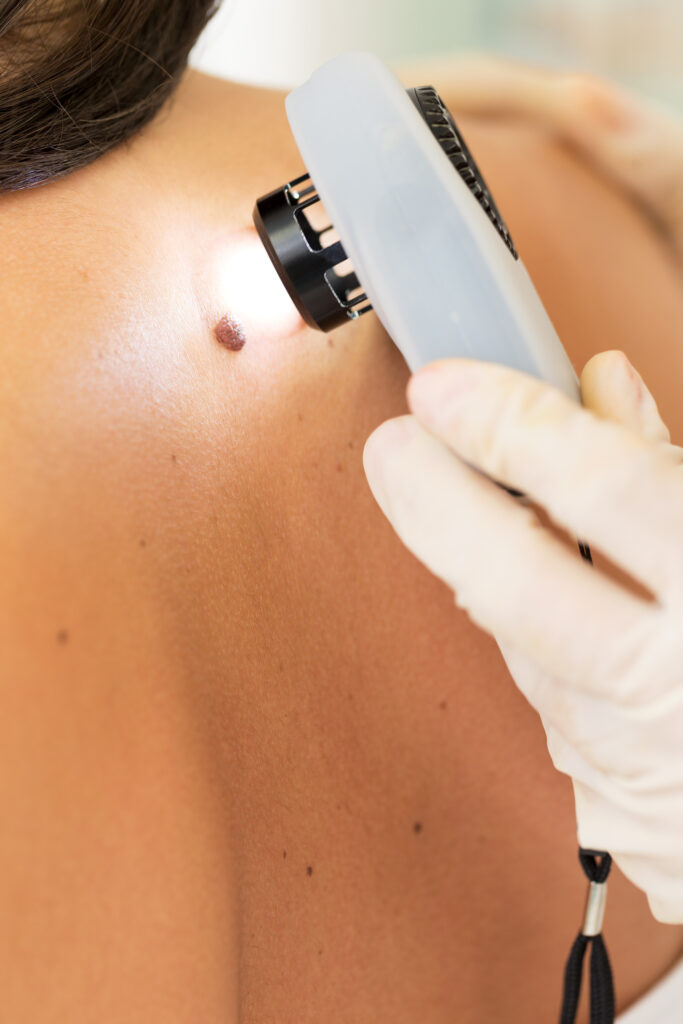Importance of Skin Cancer Screenings

Does it seem like every time you turn around, you’ve got another recommended doctor’s appointment? From twice a year dental cleanings to annual checkups, and everything in between, it can all begin to seem like a lot. One appointment you should never skip, though, is your skin cancer screening.
Did you know that each day, approximately 9,500 people in the United States receive a diagnosis of skin cancer? That’s a large number! Worse, more than two people die of skin cancer each hour. More people are diagnosed with skin cancer each year than all other cancers combined. Skin cancer starts in the epidermis, the outer layer of skin, and can be melanoma or nonmelanoma cancer. The epidermis is made up of squamous cells, basal cells, and melanocytes, and skin cancer is either squamous cell carcinoma, basal cell carcinoma, or melanoma, depending on which cells it affects. Squamous cell carcinoma and basal cell carcinoma are types of nonmelanoma skin cancer, which is the most common cancer in the United States.
Though nonmelanoma skin cancers are more common than melanoma, they are also easier to cure. Melanoma often spreads to other parts of the body, is harder to cure, and can be fatal. The best way to keep melanoma from spreading and successfully treat it is to find it early.
That is where skin cancer screenings come in. The point of screenings is to find skin cancer in the early stages, before there are any symptoms. Start by doing a self-exam, about once a month, looking at every part of your body using a full length mirror and a hand mirror. You are looking for:
- Any new, expanding, or changing growths, spots, or bumps on the skin
- Any bleeding sores, especially those that don’t heal within several weeks
- Rough, scaly patches that might crust or bleed
- Wart-like growths
- Oddly shaped moles, or moles with irregular borders and different colors
- Moles that are new or changing in size, shape, or color
If you see anything suspicious, make an appointment to see your dermatologist for a skin cancer screening. Additionally, the Skin Cancer Foundation recommends annual screenings with a dermatologist, even if you haven’t seen anything that concerns you. There are some risks of screenings, like false positives or false negatives, and if a biopsy is done it can leave a scar. However, the benefit of being able to successfully treat skin cancer outweighs any risks.
If you are due for a skin cancer screening and looking for a dermatologist, contact Swinyer-Woseth Dermatology. Committed to providing superior, professional hair and skin care in a manner that’s practical, efficient, and compassionate, we have over 30 years of experience providing dermatological services in Salt Lake City. We provide a variety of services, from cosmetic skincare to treatment for skin cancer. Our team of board-certified dermatologists and licensed cosmetic service providers are here to provide you the care you need in a comfortable, professional atmosphere. Call (801) 682-4715 or contact us through our website.
